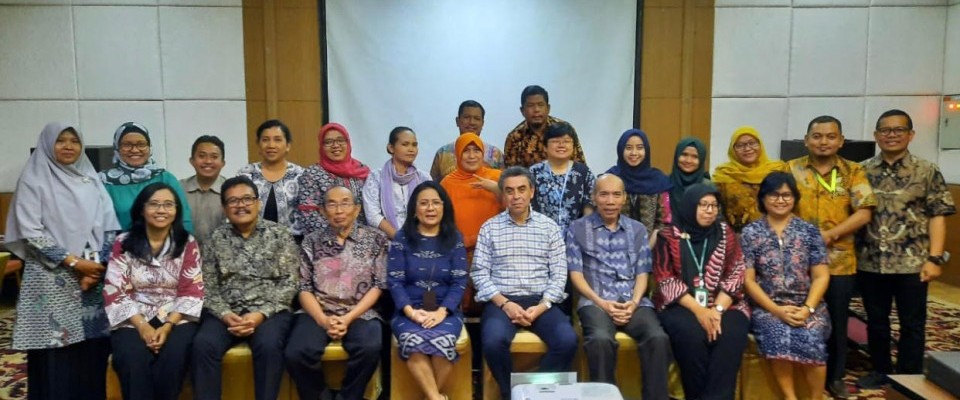
The FETP stakeholder meeting was held at Puri Denpasar Hotel Jakarta on 10-11 December 2019. The meeting was attended by the Indonesian FETP secretariat, the surveillance sub-district, the legal department, the organization and community of the P2P directorate general, the program and information section of the P2P directorate general, the staffing department and the general directorate general P2P, PPSDM Agency, BBPK Ciloto, FETP implementing universities (UI, UGM, Airlangga University, Udayana and Unhas), PAEI, PAELI, FAO, CDC Indonesia and we also have guests from the CDC Atlanta namely Bassam Jarrar, he works at the Workforce and Institute Development Branch, Division of Global Health Protection, Center for Global Health which helped develop the FETP Indonesia roadmap.
The FETP stakeholder meeting was held in coordination with the formulation of the Indonesian FETP roadmap for 2020-2024 to increase the capacity of epidemiological personnel at all levels at the national, provincial, district / city level up to the Puskesmas level. The meeting will discuss the project field assignments and guidance, training for epidemiology, and FETP management which includes a ToR and an FETP roadmap.
The series of events were officially opened by the Director of Surveillance and Health Quarantine, drg. Vensya Sitohang, M.Epid at the same time gave a presentation on policies and challenges of functional epidemiological positions in Indonesia. After that there was an explanation from the Indonesian Epidemiologist Association (PAEI) regarding the role of professional organizations in increasing the capacity of epidemiology in Indonesia. Still in the same common thread, continued by the explanation from the PPSDM Agency which discusses the development and improvement of epidemiological personnel in terms of health training. The next presentation was from the FETP Indonesia secretariat which explained the results of the situation analysis and challenges for FETP in Indonesia. It turns out, until now Indonesia has a population ratio of 1,200 epidemiologists in the field, but to date, there are only around 600 FETP graduates in Indonesia. The activity was followed by group discussions to discuss in more detail in accordance with their respective competencies regarding the FETP field project and guidance, epidemiological training, the role of FETP alumni and FETP management in the form of a roadmap. Followed by the presentations of each group and open discussion at the forum to get suggestions on the implementation of the next FETP it will be like and hopefully better, the discussion went smoothly and was very productive. The next stage of this activity in the near future will be an MoU from the Ministry of Health with the University, and an MoU between the University and the Provincial, Regency / City Health Office. In this MoU, it will be written how FETP training at the University is carried out and how when alumni have graduated from the university it can help to become a problem solver in districts / cities in Indonesia.
